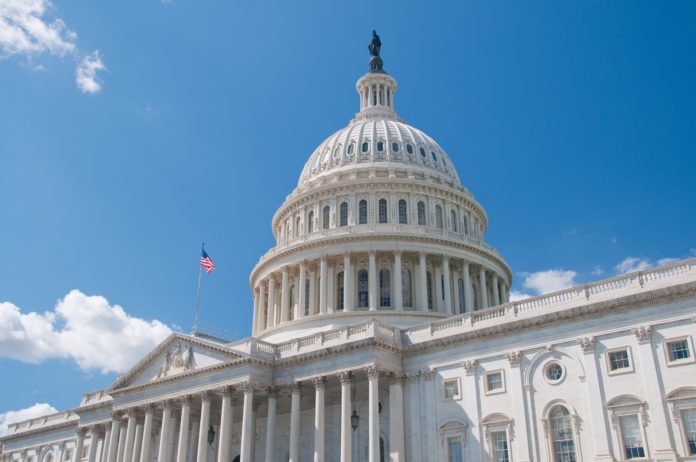Select a title below to read more:
White House Says No Efforts in Place on Nonprofit Tax Status
In recent days, LeadingAge joined a hastily called meeting with hundreds of other nonprofits and associations concerned about reports that the White House is on the cusp of issuing one or more Executive Orders that could restrict or revoke nonprofit organizations’ tax-exempt status. Those rumors seem to have been put to rest, at least for the moment.
During the evening of April 22, Politico reported that, in response to a question on whether President Trump was considering any actions to target nonprofit organizations, the White House said, “No such orders are being drafted or considered at this time.”
LeadingAge will remain connected to nonprofit-supporting coalitions and vigilantly engage in any efforts to diminish the capacity of nonprofit organizations. Already this year, nonprofits have seen their tax-exempt status threatened in other venues. For example, the leaked menu of possible budget reconciliation revenue-raisers from the House Budget Committee in January offers up eliminating hospitals’ nonprofit status to generate $260 billion in “savings” (additional revenue) over 10 years. During LeadingAge’s April Lobby Day, we made sure to remind lawmakers they must protect the tax-exempt status of nonprofits, reiterating points we made in letters and visits to House and Senate committees facing decisions on how to fulfill their budget reconciliation instructions.
In 2024, during the previous session of Congress, House and Senate bills were introduced to revoke the tax-exempt status for any organizations that provide financial support or resources to designated terrorist groups. At least one such House bill passed the House with bipartisan support in November 2024. Again, LeadingAge will continue to engage on these issues.
First Swath of Reconciliation Bills Released
On April 28, in advance of a series of markups in the House, House Republicans released the text of several reconciliation bills. Eleven House committees received budget reconciliation instructions from H.Con.Res. 14, the House- and Senate-passed fiscal year 2025 budget resolution. LeadingAge is reviewing the bills as they come out for pertinent provisions for LeadingAge members. The Energy and Commerce markup, which will include any Medicaid provisions, is rumored to be on May 7, which means the bill text would be out no later than the night of May 5. The Ways and Means bill, which will include tax provisions, is expected to be the last of the House reconciliation pieces to be marked up, will likely not be marked up until late May or even early June according to some reports.
House Speaker Mike Johnson (R-LA) had indicated he wanted to get the reconciliation bill out of the House by Memorial Day, which will not be feasible if the Ways and Means or any other markup slips too late into May. After all the committee markups, the bills have to go through the House Budget Committee and be voted on by the full House. The Senate would then take up the bill and while the Senate is expected to have a more truncated Committee process, they still have a number of rules to follow to ensure the bill is reconciliation eligible.
Three committees, Education and Workforce, Judiciary, and Financial Services, each with jurisdiction over aging services-related programs and funding, will mark up their bills in response to budget reconciliation instructions the week of April 28. Short summaries of these bills are below; LeadingAge will continue to review the committees’ reconciliation bills.
House Education and Workforce Committee: The reconciliation instructions for the House Education and Workforce Committee directed the Committee to identify changes in laws within its jurisdiction to reduce the deficit by at least $330 billion over the next 10 years. The Committee’s legislation saves over $330 billion “to help advance President Trump’s agenda to provide tax relief for American families and small businesses, rein in wasteful spending, and reduce the federal budget deficit,” the Committee said in a statement. The Committee’s reconciliation bill includes the Bipartisan Workforce Pell Act from the last Congress, which LeadingAge supports. The bill would allow Pell Grants for short term training programs, such as those needed by direct care workers, lasting less than the current fifteen weeks required by the Pell Grant program. The Education and Workforce Committee will markup its bill on April 29.
House Judiciary Committee: The reconciliation instructions for the House Judiciary Committee allow for up to $110 billion for immigration enforcement and deportation funding. The Committee, which has jurisdiction over immigration policy, made public the text of its part of the reconciliation package. The bill would establish a number of fees, including a minimum $1,000 asylum application fee that cannot be waived or reduced. This is notable because historically there has been no fee associated with applying for asylum, a policy that ensures the asylum process remains accessible to those seeking protection from persecution. The bill would also establish a $1,000 fee for parolees and a $550 for employment authorization documents for many applicants. The Judiciary Committee will markup its bill on April 30.
House Financial Services Committee: The reconciliation instructions for the House Financial Services Committee directed the Committee to identify changes in laws within its jurisdiction to reduce the deficit by at least $1 billion over the next 10 years. The Committee will consider a proposal to rescind any remaining unobligated balances of the Department of Housing and Urban Development’s (HUD) Green and Resilient Retrofit Program (GRRP). LeadingAge believes the vast majority of GRRP funds have been obligated. HUD made GRRP awards to multifamily providers from the fall of 2023 through the fall of 2024. The program was suspended by the Trump Administration in January 2025 but restarted after a preliminary ruling by a federal judge on April 14, 2025; HUD has since restarted processing awards. In addition to rescinding any unobligated GRRP funds, the Committee seeks to secure at least $1 billion in federal savings over the next 10 years by changing laws unrelated to aging services but under its jurisdiction, including changes to the Public Company Accounting Oversight Board, the Consumer Financial Protection Bureau, and the Financial Stability Oversight Council. The Financial Services Committee will markup its bill on April 30.
OMB Receives Proposed Rule to Revamp Medicaid Provider Taxes
The White House Office of Management and Budget (OMB) has received a proposed rule from HHS that could cause states to restructure the way they impose provider taxes. The current administration views provider taxes in an unfavorable light and believes it is incumbent upon them to curtail use by states to optimize federal funding in support of Medicaid programs. The proposed rule is likely to include changes to parameters that states use to offer exemptions or reduced pay-in rates. This could harken back to the previously proposed changes in the Medicaid Fiscal Accountability Rule (MFAR) that included flattening of provider tax rates and eliminating tools and structures states deploy in their provider taxes.
Federal rules require that provider taxes be both broad based and not include a hold harmless. These two requirements are intended to ensure that taxes are generally redistributive, meaning they generate revenues from non-Medicaid providers and services. The process within the federal government of updating federal rules includes multiple steps with the final step before release to the public as a proposed rule being reviewed by OMB. LeadingAge believes this proposed rule to be of interest to the current administration and anticipate its release soon. LeadingAge will be tracking this closely and will provide additional information when it is available. The OMB posting, though low on details, can be reviewed here.
Payroll Based Journal Data Due May 15
Payroll based journal (PBJ) data submissions are due May 15 for Fiscal Quarter 2, reporting period January 1, 2025 – March 31, 2025. Multiple options for technical support exist through iQIES. Live phone and email support will be available through 7:00 PM CT on May 15.
Schedule a call, create a service ticket, or utilize the live chat function through CCSQ Support Central. For password issues or rejected files, CMS asks that you have your CCN and QIES User ID available when you speak with the representative.
For PBJ submission inquires, have your staffing summary report, individual daily staffing report, and/or Submission ID ready to provide to the representative. Don’t wait to submit your data – there are almost no exceptions to missed data submission deadlines so submit early to allow time for Service Center assistance as needed.
Weekly Recaps: April 30, 2025
Affordable Housing Weekly Recap. Here is your weekly Affordable Housing Weekly Recap.
Home Health Weekly Recap. Here is your weekly Home Health Weekly Recap.
Hospice Weekly Recap. Here is your weekly Hospice Weekly Recap.
Life Plan Community Weekly Recap. Here is your weekly Life Plan Community Recap.
Medicaid, HCBS, and PACE Weekly Recap. Here is your weekly Medicaid, HCBS, and PACE Weekly Recap.
Nursing Home Weekly Recap. Here is your Nursing Home Weekly Recap.




